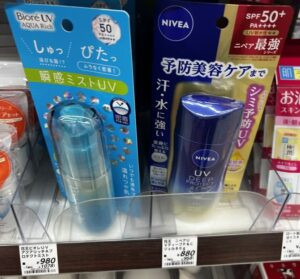Embarking on a trip to Japan and wondering what essentials to pack? SIXT.VN is here to guide you through a complete packing list, ensuring you’re prepared for your adventure in Japan, whether you’re exploring vibrant cities like Tokyo or serene landscapes. From clothing to travel documents, we’ll help you pack smart and light. Get ready for an unforgettable travel experience with our practical advice, tailored to make your journey smooth and enjoyable. Consider this your ultimate checklist, covering everything from travel essentials to cultural nuances, guaranteeing you’re fully equipped for your Japanese exploration.
1. Essential Travel Documents and Accessories
Preparing your documents is the first step in planning a trip to Japan. Having these items in order ensures a smooth and hassle-free start to your adventure.
1.1. Passport and Visa
It’s crucial to confirm your passport’s validity. Ensure your passport is valid for at least six months beyond your intended stay in Japan. According to the Ministry of Foreign Affairs of Japan, some nationalities may require a visa for entry, so it’s important to check the specific requirements based on your citizenship before traveling.
1.2. Passport Wallet
Use a passport wallet to keep your travel documents organized and protected. Japan requires you to carry your passport at all times. A high-quality passport wallet, preferably waterproof, is essential for protecting your documents from damage and theft. Many options are available online.
1.3. Accommodation Address
Carry a printed copy of your first accommodation address in both English and Japanese. This helps with immigration forms and is useful when asking for directions or taking a taxi. It’s a simple step that can save you a lot of time and stress upon arrival.
1.4. Flight and Hotel Confirmations
Have digital and printed copies of your flight and hotel confirmations readily available. These documents are often required at check-in and can be useful for quickly accessing your booking details. Consider using a travel app to store these confirmations securely.
1.5. Travel Insurance Details
Keep your travel insurance information accessible, including policy number and emergency contact details. Travel insurance can cover unexpected medical expenses, lost luggage, or trip cancellations, providing peace of mind during your travels. Ensure the policy covers activities you plan to participate in.
2. Clothing Essentials for Japan
Packing the right clothes for Japan depends on the season you plan to visit, but some essential items should be included regardless of the time of year.
2.1. Versatile Clothing
Pack versatile clothing items that can be layered for different weather conditions. According to the Japan National Tourism Organization (JNTO), Japan experiences four distinct seasons, each requiring different types of clothing. Layering allows you to adjust to changing temperatures throughout the day.
2.2. Comfortable Walking Shoes
Bring at least two pairs of comfortable walking shoes for exploring cities and attractions. Japan involves a lot of walking, so having comfortable and supportive footwear is crucial. Alternate between pairs to prevent blisters and foot fatigue.
2.3. Socks
Pack enough socks for your trip, ensuring they are in good condition. In Japan, there are many situations where you’ll be asked to remove your shoes, and you don’t want to be caught with holey socks.
2.4. Appropriate Attire for Restaurants
Include at least one outfit suitable for dining at nicer restaurants. As mentioned in The Tokyo Chapter, Japanese people often dress well, and dressing respectfully shows consideration. Pack clothing that is clean, neat, and appropriate for a restaurant setting.
2.5. Seasonal Clothing
Adjust your clothing choices based on the specific season you are visiting.
- Spring (March-May): Light jacket, sweaters, and shirts with both long and short sleeves.
- Summer (June-August): Light, breathable fabrics, shorts, t-shirts, and swimwear.
- Autumn (September-November): Medium-weight jacket, sweaters, long-sleeved shirts, and trousers.
- Winter (December-February): Heavy puffer jacket, beanie, gloves, scarf, and warm layers.
3. Health and Personal Care Items
Taking care of your health and personal hygiene while traveling is crucial. Here are essential items to pack:
3.1. Medications
Bring all necessary medications, including prescriptions and over-the-counter drugs. It is essential to check if your medications are allowed in Japan, as some substances are restricted. Keep medications in their original packaging with a copy of your prescription.
3.2. First-Aid Kit
Pack a basic first-aid kit with essentials like band-aids, antiseptic wipes, pain relievers, and any personal medical supplies. This ensures you’re prepared for minor injuries or ailments. Include items for common travel issues such as motion sickness or stomach upset.
3.3. Toiletries
Bring travel-sized toiletries to save space and comply with airline regulations. While many hotels provide basic toiletries, having your preferred brands ensures comfort. Consider bringing items like shampoo, conditioner, soap, toothbrush, toothpaste, and deodorant.
3.4. Sunscreen and Insect Repellent
Pack sunscreen and insect repellent, especially if traveling during the summer months. Sunscreen protects your skin from strong UV rays, while insect repellent helps prevent mosquito bites. Choose products that are travel-sized and suitable for sensitive skin.
3.5. Hand Sanitizer and Wet Wipes
Include hand sanitizer and wet wipes to maintain hygiene on the go. These items are useful for cleaning your hands when soap and water are not available, particularly when using public transportation or visiting crowded attractions.
 Japanese Sunscreen Brands
Japanese Sunscreen Brands
4. Gadgets and Electronics
In the digital age, certain gadgets and electronics can significantly enhance your travel experience.
4.1. Smartphone and Charger
Bring your smartphone and charger to stay connected and access essential travel apps. A smartphone is invaluable for navigation, communication, and accessing travel information. Ensure your phone is unlocked and consider purchasing a local SIM card for data.
4.2. Portable Charger
Pack a portable charger to keep your devices powered throughout the day. This is especially useful when you’re out exploring and may not have access to power outlets. Look for a charger with multiple ports to charge multiple devices simultaneously.
4.3. Universal Adapter
Bring a universal adapter to charge your electronic devices. Japan uses a Type A and Type B plug, so a universal adapter is essential if your devices use different plug types. Ensure the adapter is compatible with the voltage in Japan (100V).
4.4. Camera
Consider bringing a camera to capture your travel memories. While smartphones have excellent cameras, a dedicated camera can offer better image quality and zoom capabilities. Don’t forget extra batteries or memory cards.
4.5. Noise-Canceling Headphones
Pack noise-canceling headphones for a more comfortable travel experience on planes and trains. These headphones can help you relax and enjoy your journey by blocking out ambient noise. They can also be useful for sleeping on long flights or train rides.
5. Money and Banking Essentials
Managing your finances wisely is essential for a smooth trip.
5.1. Cash
Bring a mix of cash for smaller purchases and places that don’t accept credit cards. While credit cards are becoming more widely accepted, many smaller establishments in Japan still prefer cash. Having yen on hand is essential for transportation, food stalls, and smaller shops.
5.2. Credit and Debit Cards
Inform your bank of your travel plans and bring a mix of credit and debit cards. This ensures you can access funds and make larger purchases. Be aware of any foreign transaction fees and consider using a card with no fees.
5.3. Coin Purse
Carry a coin purse to manage the large amount of coins you’ll accumulate. Japan uses coins for many transactions, and you’ll quickly accumulate a lot of them. A coin purse helps keep them organized and accessible.
5.4. Emergency Funds
Set aside emergency funds in case of unexpected expenses. It’s wise to have extra money available for unforeseen circumstances such as medical emergencies or travel disruptions. Keep this money separate from your main travel funds.
5.5. Travel Money Card
Consider using a travel money card for convenient and secure spending. These cards allow you to load funds in local currency and can be used like a debit card. They often offer better exchange rates and lower fees than traditional credit cards.
6. Comfort and Convenience Items
These items can make your travel experience more enjoyable and comfortable.
6.1. Travel Pillow
Bring a travel pillow for comfortable sleep on long journeys. A good travel pillow supports your neck and head, allowing you to rest comfortably on planes, trains, and buses. Look for inflatable or memory foam options.
6.2. Eye Mask and Ear Plugs
Pack an eye mask and ear plugs to block out light and noise for better sleep. These items are especially useful when staying in hostels or hotels with thin walls. They can also help you adjust to different time zones.
6.3. Reusable Water Bottle
Carry a reusable water bottle to stay hydrated and reduce plastic waste. Staying hydrated is important, especially when exploring new places. A reusable water bottle allows you to refill at water fountains and reduces your environmental impact.
6.4. Snacks
Bring a few familiar snacks to have on hand during your travels. While Japan offers a variety of delicious foods, having some familiar snacks can provide comfort and convenience, especially for children or those with dietary restrictions.
6.5. Collapsible Laundry Hamper
Use a collapsible laundry hamper to keep your space tidy. This helps separate clean and dirty clothes, especially in smaller hotel rooms. It can also be useful for transporting laundry to on-site coin laundries.
 Coin Laundry at Hatago Inn
Coin Laundry at Hatago Inn
7. Documents and Important Information
7.1. Copies of Important Documents
Keep digital and physical copies of important documents such as passport, visa, and travel insurance. Store digital copies securely in the cloud or on a password-protected device. Physical copies should be kept separate from the originals.
7.2. Emergency Contact Information
Have a list of emergency contact numbers, including your embassy, family members, and local contacts. Store these numbers in your phone and keep a printed copy in your wallet. This ensures you can quickly reach out for help in case of an emergency.
7.3. Travel Itinerary
Create a detailed travel itinerary and share it with family or friends. This helps them know your whereabouts and can be useful in case of an emergency. Include flight details, accommodation addresses, and planned activities.
7.4. Language Translation App
Download a language translation app on your smartphone. While many Japanese people speak some English, a translation app can be invaluable for communicating in restaurants, shops, and other situations. Google Translate is a popular and effective option.
7.5. Local Phrases
Learn a few basic Japanese phrases to enhance your interactions with locals. Knowing phrases like “hello,” “thank you,” and “excuse me” can show respect and make your interactions more pleasant. Many language learning apps can help you practice these phrases.
8. Staying Connected
8.1. Pocket Wi-Fi or SIM Card
Rent a pocket Wi-Fi device or purchase a local SIM card for internet access. Staying connected is essential for navigation, communication, and accessing travel information. Pocket Wi-Fi devices provide a reliable internet connection for multiple devices, while a local SIM card offers data at a competitive price.
8.2. Communication Apps
Install communication apps like WhatsApp or Viber to stay in touch with family and friends. These apps allow you to make calls and send messages over the internet, avoiding international roaming charges. Ensure your contacts also have the apps installed.
8.3. Social Media Apps
Use social media apps to share your travel experiences and connect with other travelers. Apps like Instagram and Facebook allow you to share photos and videos of your trip. You can also join travel groups to get tips and recommendations from other travelers.
8.4. Navigation Apps
Download navigation apps like Google Maps or Citymapper for easy navigation around Japan. These apps provide detailed maps, directions, and public transportation information. They can be invaluable for exploring cities and finding attractions.
8.5. VPN Service
Consider using a VPN service to protect your online privacy and security. A VPN encrypts your internet traffic and protects your data from hackers and eavesdroppers. This is especially important when using public Wi-Fi networks.
9. Cultural Sensitivity and Etiquette
9.1. Gifts
Bring small gifts if you plan to visit someone’s home. Gifts are a common gesture of politeness in Japan. Choose items that are unique to your home country and wrap them nicely.
9.2. Business Cards
Carry business cards if you’re traveling for business. Exchanging business cards is an important part of Japanese business culture. Present your card with both hands and receive others’ cards with respect.
9.3. Shoes
Be prepared to remove your shoes when entering homes or traditional establishments. Many homes and traditional restaurants require you to remove your shoes at the entrance. Wear shoes that are easy to slip on and off.
9.4. Tipping
Avoid tipping, as it is not customary in Japan. Tipping is generally not expected in Japan, and attempting to tip may cause confusion or even offense. Instead, show your appreciation with a polite “thank you.”
9.5. Noise Levels
Be mindful of noise levels in public spaces. Japanese culture values peace and quiet, so avoid talking loudly on public transportation or in quiet areas. Keep your phone on silent mode and avoid making loud phone calls.
10. Specific Items for Families with Children
Traveling with children requires additional planning and preparation.
10.1. Entertainment for Kids
Pack entertainment for kids, such as books, toys, and electronic devices. Keeping children entertained on long flights or train rides can prevent boredom and meltdowns. Consider bringing items that are lightweight and easy to pack.
10.2. Baby Food and Snacks
Bring baby food and familiar snacks for young children. While Japan offers a variety of food options, having some familiar items can provide comfort and convenience, especially for picky eaters. Choose snacks that are healthy and easy to eat on the go.
10.3. Diapers and Wipes
Pack enough diapers and wipes for the first few days of your trip. While diapers are available in Japan, having some on hand ensures you’re prepared upon arrival. Choose diapers that are absorbent and comfortable for your child.
10.4. Stroller or Baby Carrier
Bring a stroller or baby carrier for easy transportation of young children. Strollers are useful for navigating airports and crowded attractions, while baby carriers allow you to keep your hands free. Choose options that are lightweight and easy to fold.
10.5. Medication for Kids
Pack any necessary medications for your children, including prescriptions and over-the-counter drugs. Ensure you have enough medication to last the duration of your trip. Keep medications in their original packaging with a copy of the prescription.
 Little girl smiling at Princess Jasmine
Little girl smiling at Princess Jasmine
FAQ: What to Take When Traveling to Japan?
1. What documents do I need to travel to Japan?
You need a valid passport, and depending on your nationality, a visa. It’s crucial to check the specific visa requirements for your country before traveling.
2. What type of clothing should I pack for Japan?
Pack versatile clothing items that can be layered. Include comfortable walking shoes, socks, and at least one outfit suitable for nicer restaurants. Adjust your clothing based on the season you are visiting.
3. Are there any medications I should avoid bringing to Japan?
Yes, some medications are restricted in Japan. It’s essential to check if your medications are allowed and carry a copy of your prescription. Lactaid, for example, isn’t easily available without a prescription.
4. How much cash should I bring to Japan?
Bring a mix of cash for smaller purchases, as many places in Japan still prefer cash. Credit cards are becoming more widely accepted, but it’s good to have yen on hand.
5. What kind of adapter do I need for Japanese outlets?
Japan uses Type A and Type B plugs. A universal adapter is essential if your devices use different plug types.
6. Is it customary to tip in Japan?
No, tipping is not customary in Japan and may cause confusion or offense. Instead, show your appreciation with a polite “thank you.”
7. What are some essential apps to download before traveling to Japan?
Essential apps include Google Translate, navigation apps like Google Maps or Citymapper, and communication apps like WhatsApp or Viber.
8. What should I pack for my kids when traveling to Japan?
Pack entertainment, familiar snacks, diapers, and any necessary medications. A stroller or baby carrier can also be helpful for easy transportation.
9. How can I stay connected to the internet in Japan?
Rent a pocket Wi-Fi device or purchase a local SIM card for internet access. Pocket Wi-Fi devices provide a reliable internet connection for multiple devices.
10. Are there any cultural etiquette tips I should be aware of?
Be prepared to remove your shoes when entering homes or traditional establishments, avoid tipping, and be mindful of noise levels in public spaces.
SIXT.VN: Your Travel Companion for Japan
Planning a trip to Japan involves careful consideration of what to pack. From essential documents to appropriate clothing and health supplies, being well-prepared ensures a smooth and enjoyable travel experience. With SIXT.VN, you can take the stress out of planning and focus on creating lasting memories.
Are you ready to experience the best of Japan without the hassle of complicated travel arrangements? SIXT.VN offers a range of services designed to make your trip seamless and enjoyable.
- Airport Transfers: Start your trip stress-free with our reliable and comfortable airport transfer services.
- Hotel Booking: Choose from a curated selection of hotels that cater to your needs and budget.
- Tour Packages: Discover the best of Japan with our expertly crafted tour packages.
Visit SIXT.VN today and let us help you create the perfect Japanese adventure!
Address: 260 Cau Giay, Hanoi, Vietnam
Hotline/Whatsapp: +84 986 244 358
Website: SIXT.VN



